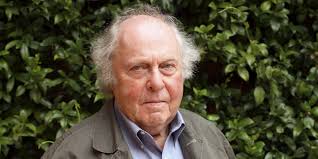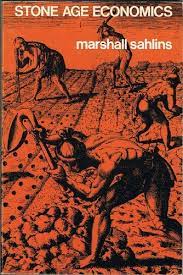

Chapter 1: The Original Affluent Society
If economics is the dismal science, the study of hunting and gathering economies must be its most advanced branch. Almost universally committed to the proposition that life was hard in the paleolithic, our textbooks compete to convey a sense of impending doom, leaving one to wonder not only how hunters managed to live, but whether, after all, this was living? The specter of starvation stalks the stalker through these pages. His technical incompetence is said to enjoin continuous work just to survive, affording him neither respite nor surplus, hence not even the “leisure” to “build culture.” Even so, for all his efforts, the hunter pulls the lowest grades in thermodynamics-less energy/capita/year than any other mode of production. And in treatises on economic development he is condemned to play the role of bad example: the so-called “subsistence economy.”
The traditional wisdom is always refractory. One is forced to oppose it polemically, to phrase the necessary revisions dialectically: in fact, this was, when you come to examine it, the original affluent society. Paradoxical, that phrasing leads to another useful and unexpected conclusion. By the common understanding, an affluent society is one in which all the people’s material wants are easily satisfied. To assert that the hunters are affluent is to deny then that the human condition is an ordained tragedy, with man the prisoner at hard labor of a perpetual disparity between his unlimited wants and his insufficient means.
For there are two possible courses to affluence. Wants may be “easily satisfied” either by producing much or desiring little. The familiar conception, the Galbraithean way, makes assumptions peculiarly appropriate to market economies: that man’s wants are great, not to say infinite, whereas his means are limited, although improvable: thus, the gap between means and ends can be narrowed by industrial productivity, at least to the point that “urgent goods” become plentiful. But there is also a Zen road to affluence, departing from premises somewhat different from our own: that human material wants are finite and few, and technical means unchanging but on the whole adequate. Adopting the Zen strategy, a people can enjoy an unparalleled material plenty-with a low standard of living.
That, I think, describes the hunters. And it helps explain some of their more curious economic behavior: their “prodigality” for example-the inclination to consume at once all stocks on hand, as if they had it made. Free from market obsessions of scarcity, hunters’ economic propensities may be more consistently predicated on abundance than our own. Destutt de Tracy, “fish-blooded bourgeois doctrinaire” though he might have been, at least compelled Marx’s agreement on the observation that “in poor nations the people are comfortable,” whereas in rich nations “they are generally poor.”
This is not to deny that a preagricultural economy operates under serious constraints, but only to insist, on the evidence from modern hunters and gatherers, that a successful accomodation is usually made. After taking up the evidence, I shall return in the end to the real difficulties of hunting-gathering economy, none of which are correctly specified in current formulas of paleolithic poverty.
…………………………..
